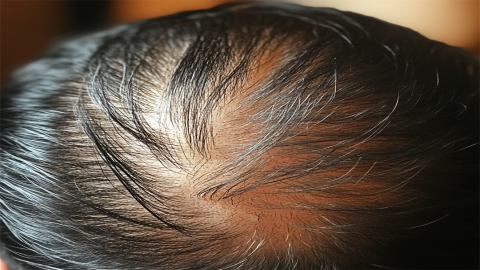Can patients with seborrheic alopecia undergo hair transplantation?
Hair transplantation mainly involves extracting healthy hair follicles from the occipital region, processing them, and then transplanting them to the balding areas to improve appearance. The general reference price for hair transplantation ranges from 25,000 to 50,000 yuan per session, and noticeable improvement is usually observed within 6-12 months. Possible risks of hair transplantation include infection and scarring. Androgenetic alopecia refers to male pattern baldness. Patients with this condition are generally suitable candidates for hair transplantation, but the procedure should be performed under a doctor's guidance. If you have related needs, it is recommended to visit a hospital promptly for evaluation and treatment.

Androgenetic alopecia primarily results from excessive sebum gland secretion and relatively high levels of androgens, which lead to follicular miniaturization and gradual thinning, softening, and loss of hair. If a patient has a healthy scalp, sufficient healthy hair follicles in the occipital region, and stable age without further hair loss progression, hair transplantation may be considered. Hair transplantation can improve the appearance of the head and boost the patient's confidence.
However, it is important to ensure that any scalp inflammation is under control before undergoing hair transplantation. Performing transplantation without controlling inflammation may affect the survival rate of transplanted follicles and could lead to postoperative complications such as infection. After hair transplantation, patients still need to continue medical treatments or adopt supportive hair care measures to maintain the health of their natural hair.
In daily life, it is recommended to maintain cleanliness of the hair and scalp by regularly washing with warm water and using a mild shampoo. A light and balanced diet is also beneficial for overall hair health.






